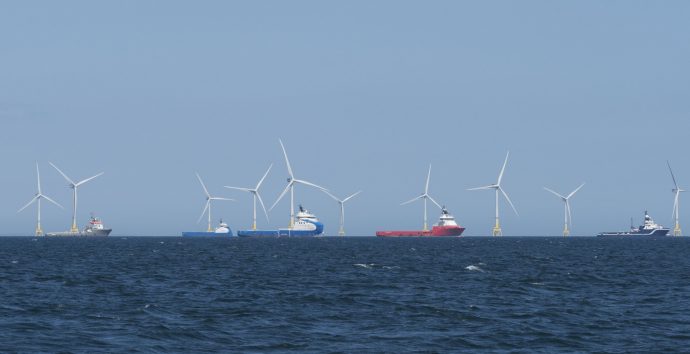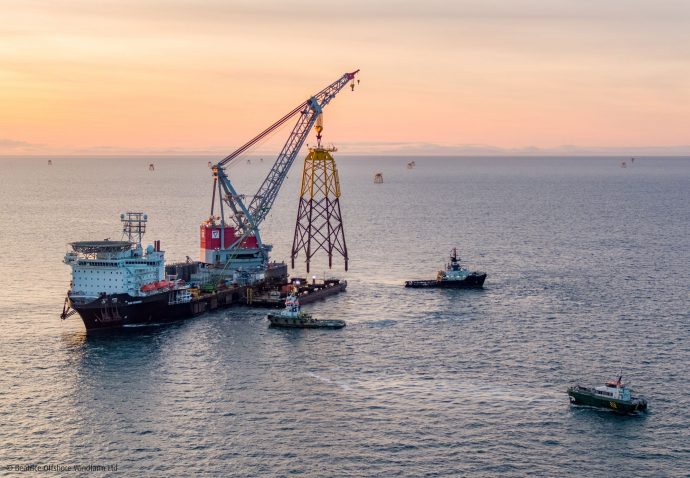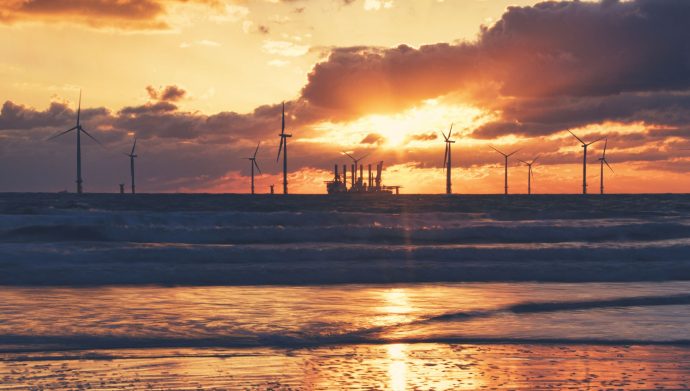When I was growing up in Norway in 1970s and ’80s, oil was king. It was the main source of our national income and the powerhouse that helped provide many of the benefits we enjoyed in our daily lives. But from the 1990s we saw increased focus on the environment and what we today call sustainability. The public started having mixed feelings about fossil fuels, and some put solar panels on their houses or cabins. In the 2000s, the government introduced electric car subsidies and now you can’t go down the street anywhere in Norway without seeing a Tesla.

It was something new to me when I flew into Scotland to see the towering columns and big rotors capturing the power of the wind. I had seen turbines in Denmark (which, together with Germany, had taken the lead investing in wind generation) but this was different. Some were even out at sea.

The shift from fossil fuels to renewable resources is now global. Change has been coming for a long time, but it’s a case of ‘now or never’ if we are serious about a sustainable future for our planet. And handling that change, in tandem with other global trends and geo-political uncertainty feeding market volatility, demands a steady hand from companies working in and serving the energy sector.
Driving the energy shift
In an article on the Windtech International website in May this year, World Wind Energy Association Secretary General Stefan Gsänger noted that while the key driver of the energy shift remains the climate emergency, there are other important factors at play. The cost of wind and solar power has dropped below conventional power generation from fossil or nuclear energy – and the latest sharp increases in gas and oil prices underline the competitiveness of alternative sources.
Another consideration is the global availability of renewable resources. Wind and solar energy can be harvested practically everywhere, access cannot be blocked, so they form the basis for energy independence of countries and communities around the world. While some politicians used to praise renewables for their environmental and economic benefits, they are now shifting their focus to this benefit, calling them ‘freedom energies’ as the German Finance Minister did recently.
Vanguard
Scotland, where GAC UK has its headquarters, is one of the countries in the vanguard of the transition to renewables. In 2018, 98% of its energy output came from wind power and in 2019 90.1% of its electricity needs were met by renewables. While renewable energy production has dropped, it still stands at 97.4%, with most coming from wind power.
Other countries leading the way in the energy switch include:
Investment focus
Energy firms plan to invest up to £250 billion (about USD 309 million) on low carbon projects by 2030, according to research by Offshore Energies UK (OEUK). The trade group has assessed the spending plans of companies operating in UK waters over the remainder of the decade and estimates that 60% will be allocated to building renewable and low carbon energy infrastructure.
BP has announced plans to invest up to £18 billion (approximately USD 22 billion) in the UK’s energy system by the end of 2030, mostly in offshore wind and other low-carbon projects such as mass hydrogen production and CO2 capture. Likewise, Shell has said it will invest £25 billion (about USD 31 billion) into UK energy systems over the next decade with 75% of the investment in low-carbon products and services including offshore wind and hydrogen production.
It has been interesting to watch oil & gas majors re-style themselves as energy majors, making sustainability central to their messaging. Many are shifting investment from fossil fuels to renewable energy, while others have a foot in each camp. And with more and more countries offering subsidies and other incentives, we are seeing plenty of new players joining the game.
Strength and value
Such a business climate provides an early entry opportunity for service providers like GAC, who have proven their strength, value and reliability supporting the conventional energy industry.

The assets and work scope involved in renewables are similar to those for oil & gas. GAC is already established in the UK as a provider of key services for offshore wind farms under construction, coming online and already producing energy. We have done that by tapping into our decades of experience and expertise serving oil & gas – after all, the support we provide for various stages of offshore wind farms mirror those we have a long provided for fossil fuels.
But some things are new. Increasingly, tenders and projects are calling on more consortium-based bidding. Are we working with the right partners? Do we have the necessary certifications or accreditations? Are we fully compliant with the stringent safety, security and environmental standards the sector demands?
GAC has a strong tradition of adapting well to change, whether it be new demands, new locations, new services or a changing business climate. As a Group, we have responded to the sustainability groundswell leading to the energy shift by embarking on a strategy which will continue to deliver what our customers need, but also answer the imperative for real action to reduce the negative impact we have on the planet we all share.
When I look out at the turbines dotting the horizon off the coast of Scotland, I’m reminded of the chill winds whistling up Norway’s fjords. These days, metaphorically at least, that wind feels warmer, bringing as it does the promise of a cleaner, more sustainable future for us all.
